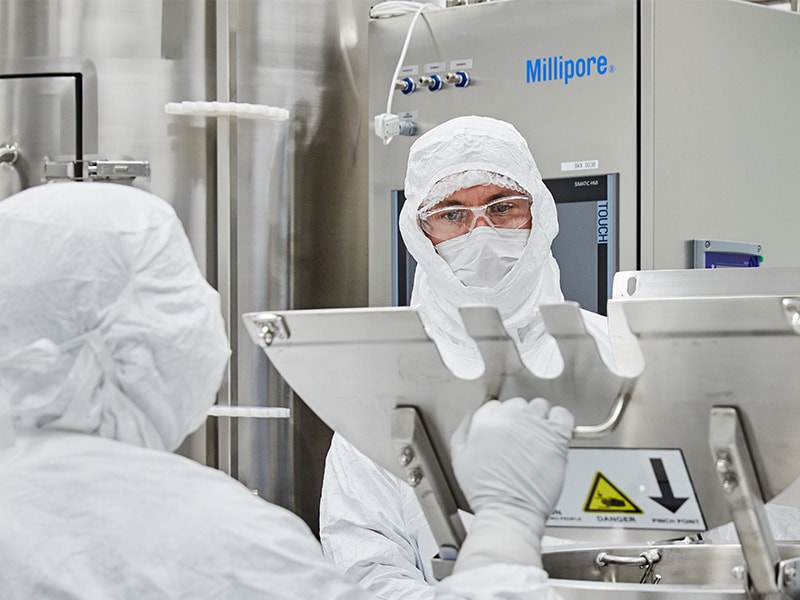 Merck announced the closing of the transaction to acquire Mirus Bio for approximately US$ 600 million.
Merck announced the closing of the transaction to acquire Mirus Bio for approximately US$ 600 million.
Advances Merck’s ambition to provide fully integrated and comprehensive solution for viral vector manufacturing
Mirus Bio’s leading GMP transfection reagents complement Merck’s upstream bioprocessing portfolio
Combined portfolio meets customer needs as demand for novel modalities grows
Merck, a leading science and technology company, today announced the closing of the transaction to acquire Mirus Bio for approximately US$ 600 million (around € 550 million), following regulatory clearances and the fulfillment of other customary closing conditions. The acquisition is a strategic step towards Merck's ambition to offer solutions for every step of viral vector manufacturing. It also reinforces the company’s commitment to supporting customers in advancing cell and gene therapies from preclinical through commercial production. Merck acquired Mirus Bio from Gamma Biosciences, a life sciences platform established by global investment firm KKR.
"Novel modalities like cell and gene therapies offer tremendous potential for bringing new curative treatments to patients,” said Sebastian Arana, Head of Process Solutions, Life Science business of Merck. “Mirus Bio’s advanced technology, combined with our bioprocessing expertise and broad portfolio, will enable us to deliver integrated solutions across the viral vector value chain and help meet the growing demand for these life-saving therapies.”
Mirus Bio specializes in the development and commercialization of transfection reagents, such as TransIT-VirusGEN®. These reagents play a critical role in the production of viral vector-based gene therapies. The addition of Mirus Bio’s leading transfection reagents strengthens Merck’s upstream portfolio and allows for an integrated viral vector manufacturing offering.
Mirus Bio’s leading transfection technologies further strengthen Merck’s existing portfolio. Merck’s Life Science business sector provides solutions for every step of the viral vector manufacturing process to advance cell and gene therapies from preclinical through commercial production. Its portfolio is one of the broadest in the industry and includes cell lines, cell culture media, process materials like chemicals, buffers and enzymes, as well as systems, filters, hardware and consumables. Merck’s expertise covers a variety of viral vector types, including adeno-associated virus, lentivirus, and adenovirus. Additionally, the company offers contract testing and comprehensive CDMO services for viral vector manufacturing, leveraging three decades of experience supporting cell and gene therapies.
www.merckgroup.com


























































































